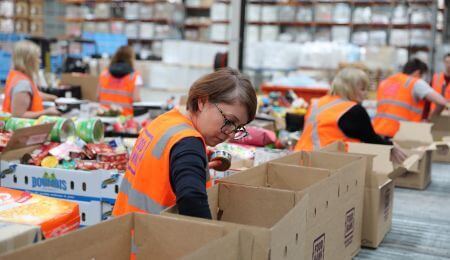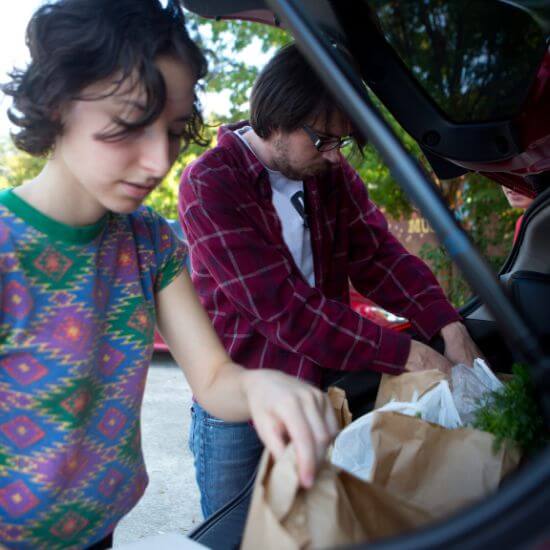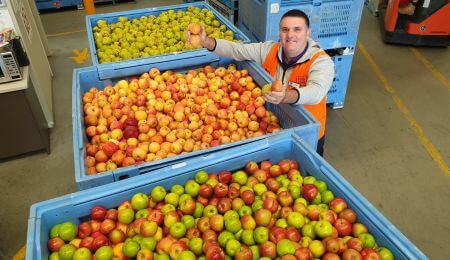Foodbank sources record volume of food and groceries in 2023
16 February 2024, – Today, Foodbank Australia revealed it sourced a record 51 million kilograms of food and groceries in 2023, the equivalent of 92 million meals, as the cost-of-living crisis pushed demand for food relief to record highs across the country.
Record volume due to high demand
The Foodbank Hunger Report 2023 confirmed food insecurity was experienced in 3.7 million households last year, more than all the households in Sydney and Melbourne combined. This is an increase of 383,000 households from the same time in 2022 and meant that Foodbanks across the country had to source more food and grocery items than ever before.
The main driver of food insecurity is the cost-of-living crisis, causing more Australians to be anxious about putting food on the table with 77 percent of food insecure households experiencing it for the first time in the past year.
Urgent Plea for Government Intervention
Foodbank Australia CEO, Brianna Casey explains, Food insecurity is now affecting more Australians than ever before.
“It’s touching groups previously unaffected: young professionals and mid to high-income earners are among those being forced to make sacrifices at the dinner table.
“In any other industry, reaching a volume milestone is cause for celebration. At Foodbank, needing to source 92 million meals is a deeply concerning signal of extreme hardship across our communities, and proof positive of the need for the Federal Government to deliver immediate and significant cost of living relief, including improved funding for the food relief sector to respond to ever-growing demand for food relief in communities we’ve never seen it before.”
Partnering for a Purpose
Whilst the worsening state of food insecurity in Australia paints a dire picture, it is the generosity and commitment of the Australian food and grocery industry, as well as corporate Australia, that allows Foodbank to support those in need at such an incredible scale.
“We couldn’t do what we do best at Foodbank without the generosity and ingenuity of our partners across the agriculture, production, manufacturing and transportations industries,” said Ms Casey.
Donations of ambient, chilled, fresh food and private label products and personal and household care items are all welcome. By redistributing otherwise wasted products—they may be out of specification, close to expiry, deleted product, surplus or damaged—Foodbank is able feed Australians that would otherwise go without.
Foodbank works with farmers, wholesalers, manufacturers, and retailers who donate food and grocery items and redirect surplus stock so that they can be distributed through Foodbank’s charity network and outlets to those who need it most.
The national food relief sector’s pre-budget submission, which calls for a significant increase in investment for food relief, can be found here. Those in the food & grocery industry or companies
 Contact us
Contact us Log in
Log in


